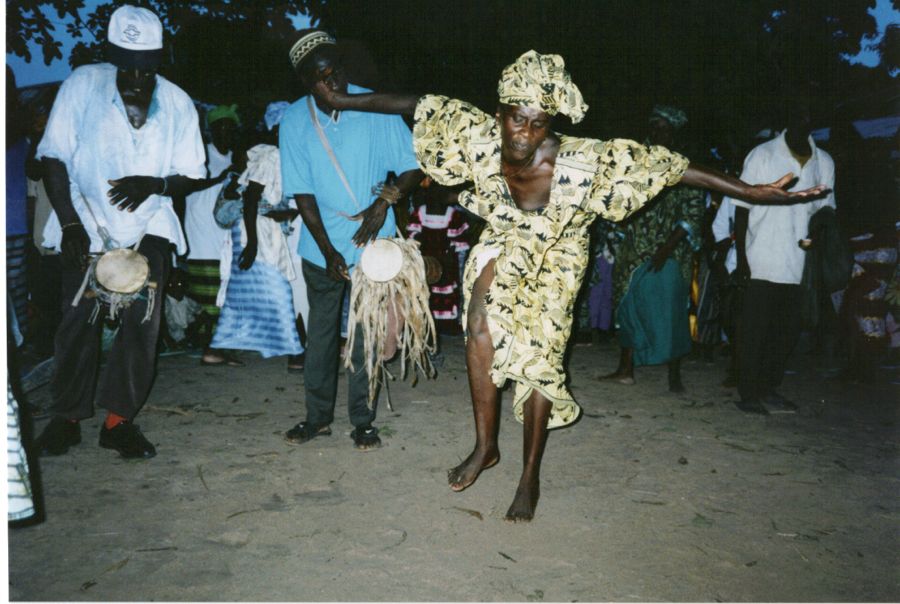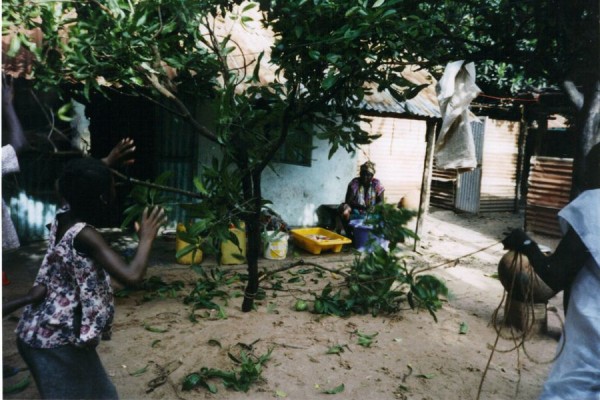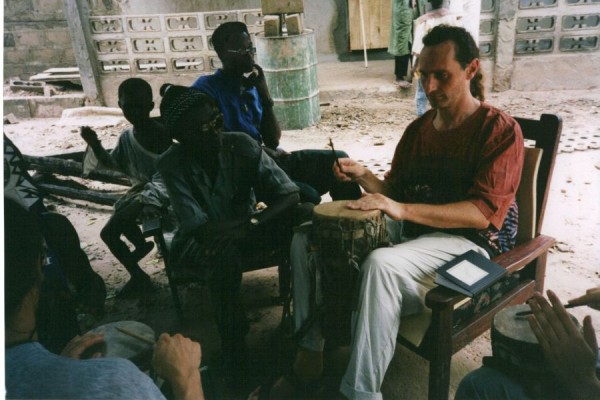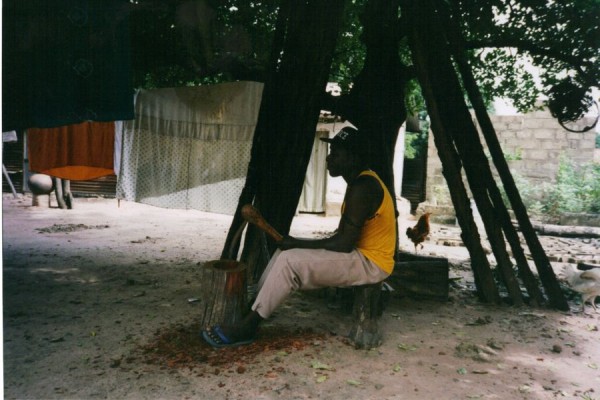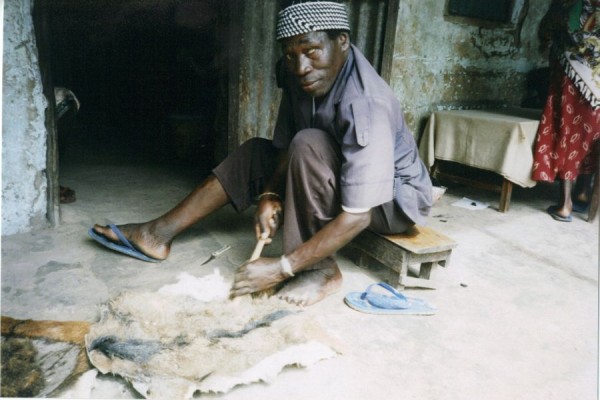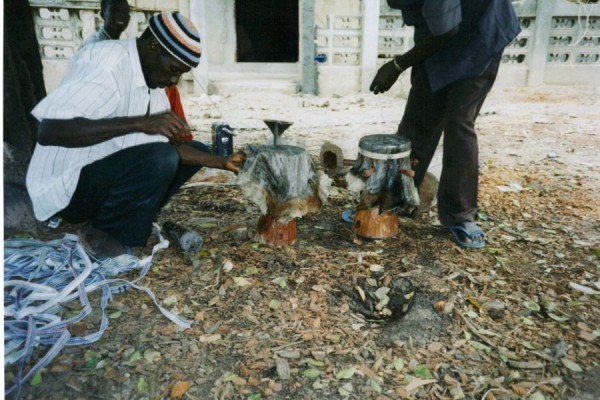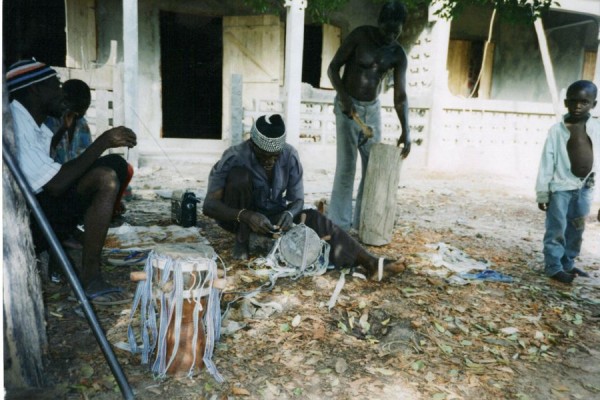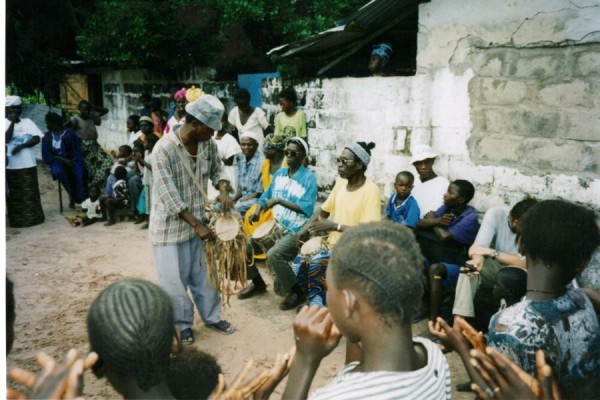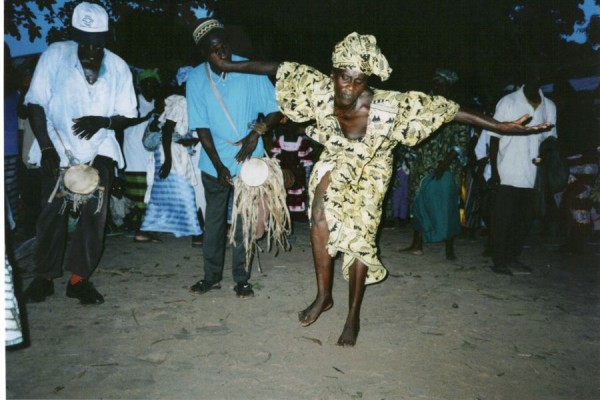- August 30, 1999
It is rainy season and as the plane flew towards the landing strip at Banjul, the capital city of The Gambia, verdant tropical forests of flat-topped acacia and baobab trees, flooded by seasonal rains fill the landscape. Lying at the western edge of Africa, surrounded on three sides by Senegal, its river defining the countries very existence, the Gambia is one of the poorest countries in the world. With a life expectancy of around 50 years and between 100-200 children in every 1000 dying before the age of five, the average western citizen is up to 100 times better off than their Gambian counterpart. I was about to be dropped into a fragile African nation of diverse cultural expressions.
Our piled high Land Rover, bursting at the seams with 8 people and luggage, trundled down the major shell and sand made highway, dodging not only flooded pot holes but groups of kerbside children waving and screaming ” Two Bob ” the slang used for white people. As we passed colourful fruit stalls and water laden women carrying receptacles of all sizes on their heads, our team of four American researchers and a lone Brit, headed towards Brikama, one of the larger cities, were master drummer Fabakary Badjie was to be our host.
Fabakary, a Mandinka man had left home at an early age to pursue his drumming, after family confrontations about his playing, but was now very highly respected in his field. His walled family compound consisting of his three wives, children, brother’s family and relatives totalled 50. It was the first time that I had been in a polygamous Muslim society and I had some very interesting conversations on this subject. Men all told me that women are not adverse to this custom of multiple wives, (the Quran allows up to four) and that the wives of one man become like sisters, helping each other with domestic and child-rearing duties. The reality was that all the women I spoke with did not want husbands marrying again. The trouble is leaving a marriage simply because their husband takes another wife would bring a lot of shame on the woman’s own family. Interestingly, the reason why it seemed to work in this compound seemed to be because the wives thought that Fabakary was a fare man.

